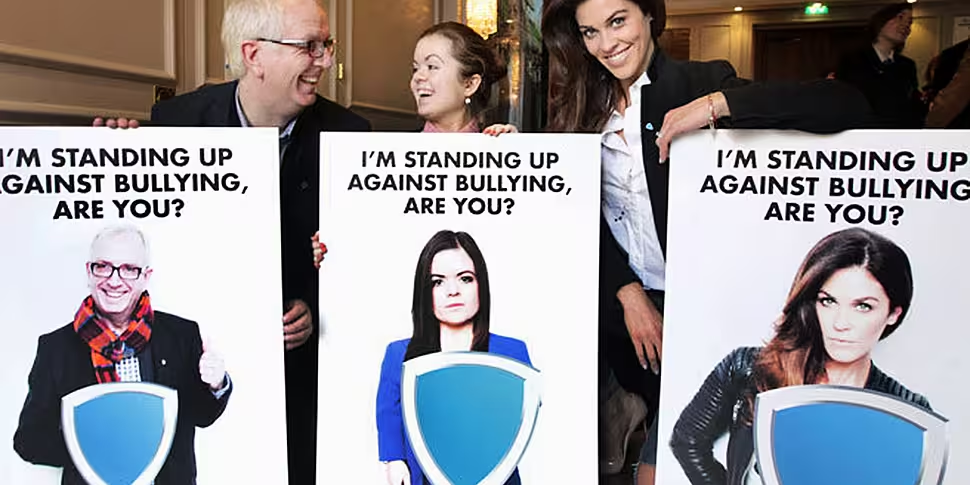One in six children say they have been bullied online.
The figures have been published by the National Association of Principals and Deputy Principals, to coincide with the a new Blue Shield anti-bullying campaign by the ISPCC.
The society wants more schools to adopt its anti-bullying toolkit to tackle bullying inside and outside the classroom.
The campaign aims to make tackling bullying a national priority, with 200 schools across Ireland - as well as working with clubs, community groups and directly with parents - to protect children from bullying.
It is using a host of new Blue Shield ambassadors, including: Hozier, Hometown, Cian Healy, Enrique Iglesias, Keith and Jay Duffy, Jack Raynor, Bernard Dunne, The Brogan Brothers, Sinéad Burke, Shane Filan, Dawn French, Thalia Heffernan, Glenda Gilson, and Pádraig Harrington.
This year's campaign hopes to directly help parents through a range of new online resources.
Andrew Jackson, ISPCC national anti bullying coordinator, says parents need to talk to their children - and that it is not about looking over their children's shoulder.
It comes as parents are being urged to remain vigilant, as new figures show a drop in the numbers checking their children's behaviour online.
Less than half of Irish mothers and fathers (46%) now monitor their children's internet use each week. That is a drop of 8% compared to this time last year.
While 30% of parents said they check infrequently - or never - what their child does online.
The research was carried out on behalf of the National Association of Principals and Deputy Principals as part of their fight against cyber-bullying.
President Mary Nihill thinks familiarity makes us less worried about the web.
There has also been a decrease in the number of parents who believe their child has been cyber-bullied - dropping from 18% in 2013, to 10% in 2015.
While 10% of parents say their child has been the victim of cyber-bullying, only 4% say their child has been the perpetrator.
It also found that one in six children say they have been cyber-bullied, while just one in 20 say they have cyber-bullied someone else.
Students place more responsibility for cyber-bullying on victims, while placing less emphasis on the role of parents - with 15% saying responsibility is on the victim themselves.
Parents believe Facebook is the biggest threat for their children online.









